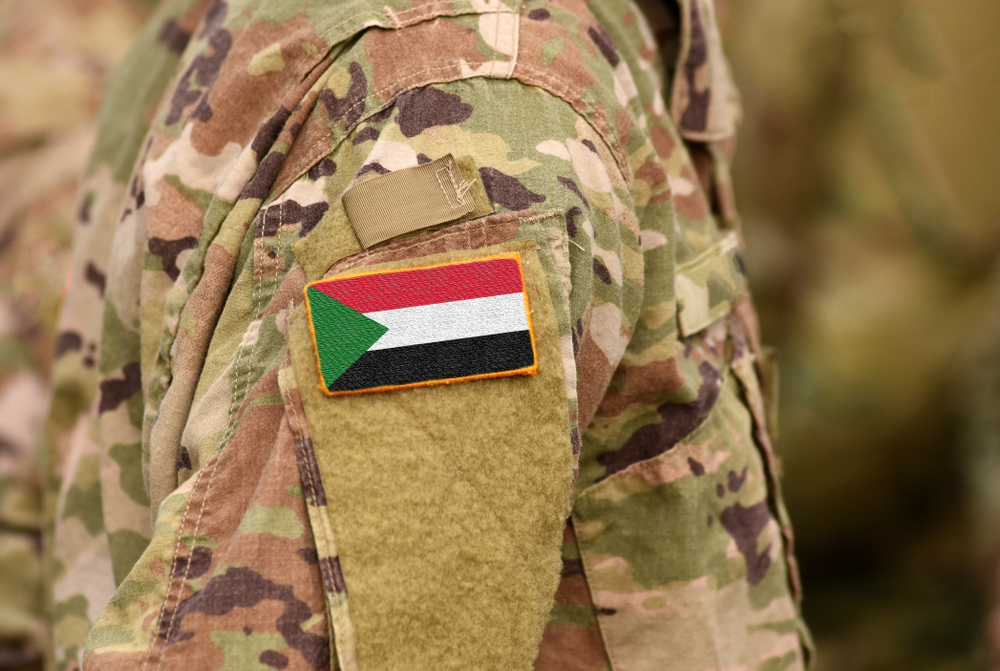
CAIRO — Sudan’s ruling military council said on Monday the country’s pro-democracy movement has asked for a delay on the announcement of a joint ruling body because of last-minute, internal disputes over the opposition appointees.
The new, 11-member body — called the sovereign council — is to rule Sudan for a little over three years until elections can be held.
The body was envisaged under a power-sharing deal between the military and the protesters that sought to resolve weeks of standoff in the wake of the April ouster of Omar al-Bashir, the country’s autocratic president of 30 years.
Al-Bashir, who has been in custody since the military removed him from power following months of street protests against his rule, appeared Monday in a Khartoum court amid heavy security. He faces corruption-related charges, including money laundering and the possession of large amounts of foreign currency.
The military and protest leaders signed the final power-sharing deal on Saturday, following pressure from the United States and its Arab allies amid growing concerns the political crisis could ignite another civil war in Sudan.
Sudan’s crisis erupted last December with demonstrators taking to the streets over the country’s crumbling economy. That quickly morphed into a nationwide anti-government protest movement demanding al-Bashir relinquish power.
The military then moved in, ousted al-Bashir and took over the country. But the protesters stayed on the streets, fearing a military dictatorship and demanding a speedy transition to civilian rule. After a deadly crackdown, several rounds of negotiations and mediation by the African Union, Ethiopia and the West, the demonstrators and the generals agreed to a power-sharing deal.
The makeup of the sovereign council was to be announced Sunday, to be followed by the disbanding the ruling military council that had run the country since April.
But the military council’s spokesman, Lt. Gen. Shams el-Din Kabashi, said the pro-democracy movement withdrew its appointees to the council, saying it would hold more consultations among its factions.
That comes after internal disputes within the Sudanese Professionals Association, one of the opposition factions, over the nomination of one its leaders, Taha Othman, to the sovereign council — despite the SPA’s decision to bow out of it.
Othman, a key protest negotiator, himself said earlier Monday he was withdrawing his nomination because of “confusion and divisions” within the SPA.
The sovereign council would include five military members and five civilians. An eleventh, independent member was also agreed on, though his identity has not been revealed, Kabashi said.
Gen. Abdel-Fattah Burhan, who chaired the military council, would lead the sovereign council for the first 21 months while a civilian leader would follow for the next 18.
Protest leaders have nominated a well-known economist, Abdalla Hamdok, to serve as prime minister of the interim Cabinet during the transition.
He was the deputy executive secretary of the United Nations Economic Commission for Africa since November 2011, but has yet to be confirmed by the sovereign council.
AU Commission Chairman Moussa Faki Mahamat on Monday hailed the appointment of Hamdok as prime minister as part of the power-sharing deal.
“This historic achievement is the culmination of months of negotiations and the result of the steadfast and peaceful resolve of the Sudanese people, especially the women and youth, for a democratic transition in Sudan,” he said.
The charges against al-Bashir are partly related to millions of U.S. dollars, euros and Sudanese pounds found in cash in his home a week after his ouster in April.
Images circulated online Monday show al-Bashir behind bars in a courtroom, wearing a traditional white robe and turban. The court then adjourned and set Aug. 24 for the next hearing.
Al-Bashir has also been charged with involvement in the killing of protesters and incitement to kill protesters during the popular uprising. It’s unclear when he will face those charges.
He is wanted by the International Criminal Court on charges of war crimes and genocide linked to the Darfur conflict in the 2000s, but the Sudanese military has said it would not extradite him to The Hague. Al-Bashir was the only sitting head of state for whom an international arrest warrant has been issued by the Netherlands-based tribunal.
The deposed president, who came to power in an Islamist-backed military coup in 1989, had failed to keep the peace in the religiously and ethnically diverse Sudan, losing three quarters of the country’s oil wealth when the mainly animist and Christian south seceded in 2011, following a referendum. That loss of oil revenue plunged the economy into a protracted crisis that continues to this day.
Ethiopian envoy Mahmoud Dirir urged the U.S. on Saturday to remove Sudan from the U.S. list of state sponsors of terrorism, in order to help Sudan’s incoming transitional government tackle the troubled economy.
“The next period has its challenges,” he said. “Lifting Sudan from the list of so-called state sponsors of terror, the large debts … and lessening the burden on the economy.”